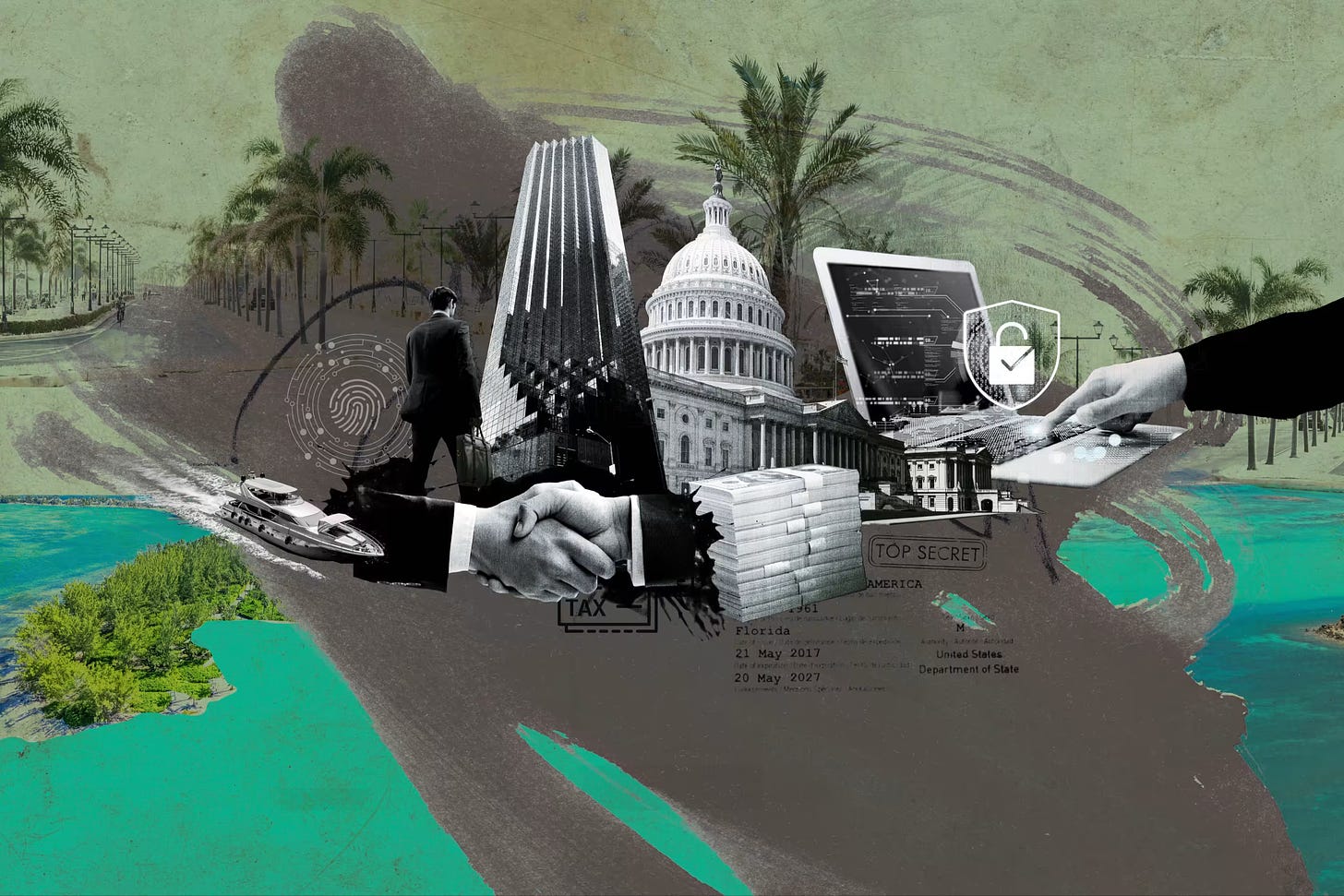In this weekend’s Financial Times, I make the case for changing the rules, getting rid of anonymously owned companies and abolishing offshore tax havens: We don’t need them. This is one of the themes of Autocracy Inc but I wanted to repeat some of them for FT readers, since London has long been the home to so many lawyers, accountants, bankers and others who enable the kleptocratic world…
Donald Trump opened Trump Tower on Fifth Avenue in 1983 and occupied the penthouse himself. The building was intended to advertise its owner’s wealth, and also to attract other rich tenants — including, ironically, the very secretive rich. Trump would sell 43 condos in Manhattan’s flashiest building to shell companies based in jurisdictions such as Panama, the Cayman Islands and the British Virgin Islands, which conceal corporate records. He sold another six condos, for cash, to corporations based in Delaware, which has historically had the least transparent company laws in the US.
Not that this was anything exceptional: in the four decades that followed, more than a fifth of the sales in Trump-owned and Trump-licensed buildings, more than 1,300 properties, were made to anonymously owned shell companies, for cash, without a mortgage, which meant the purchasers did not have to have any uncomfortable conversations with lenders. Some of those companies sold those condos again, very quickly, at much higher prices or at much lower prices — usually a sign that money laundering might have been the actual purpose of the purchase. A Trump-licensed building in Florida sold a two-bedroom condo to a shell company on August 12 2010, for example, for $956,768. That shell company sold the condo to another shell company, at a heavy loss, for $525,000 that same day.
All of these transactions were legal and there’s no evidence to suggest that Trump or his companies knew of or were complicit in money laundering schemes. They have been reported and described many times. The examples cited above come from a BuzzFeed investigation published six years ago, in 2018, but it wasn’t the only one. A Financial Times investigation in that same year also found that Russian, Kazakh and other post-Soviet oligarchs had probably been laundering money through Trump-licensed properties.
During Trump’s presidency, the scrutiny on his business dealings intensified, but that made no difference: the proportion of his company’s anonymous sales went up, not down. In 2017, the first year of the Trump administration, more than two-thirds of sales in Trump-owned or Trump-licensed buildings, tens of millions of dollars’ worth of property, went to anonymous purchasers. If any of the buyers were hoping thereby to influence the domestic or foreign policy decisions of the Trump administration, we will never know.In the years since Trump’s 2016 election, a lot has been written about his autocratic instincts, about his scorn for ethical norms and about his attempt to retain power after losing the 2020 election. But as illustrated by the story of his real estate company’s reliance on dubious shell companies, Trump was already operating in an alternate ethical universe long before he became president, a world where the rules that most ordinary people live by are easily broken. Inside this domain, anonymously owned companies and funds based in offshore tax havens hide what could be as much as 10 per cent of the world’s GDP. This is money earned from organised crime or narcotics operations, stolen from legitimate institutions, or simply hidden, legally, with the aim of avoiding taxation, alimony or embarrassment. In this world, theft is rewarded. Taxes are not paid. Law enforcement is impotent and underfunded. Regulation is something to be dodged, not respected.
Until recently, this alternative universe was considered a kind of nuisance, perhaps a problem for chronically underfunded regulators but not really something that required more political attention. However, since Russia’s full-scale invasion of Ukraine in 2022, more people have begun to understand the ways in which the secret economy now poses a genuine national security threat to the US, to the UK, to Europe and to other democracies. More to the point, they understand that the confiscation of a few yachts is no solution. What if, instead, we shut it all down?
Keep reading with a 7-day free trial
Subscribe to Open Letters, from Anne Applebaum to keep reading this post and get 7 days of free access to the full post archives.




